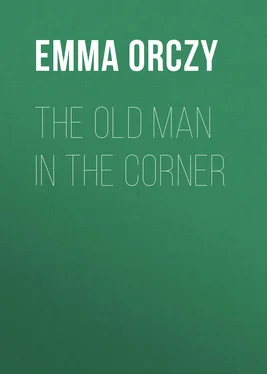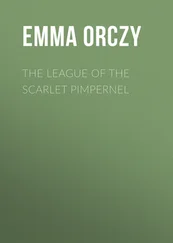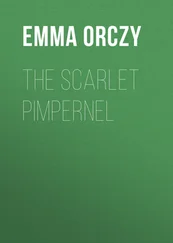Emma Orczy - The Old Man in the Corner
Здесь есть возможность читать онлайн «Emma Orczy - The Old Man in the Corner» — ознакомительный отрывок электронной книги совершенно бесплатно, а после прочтения отрывка купить полную версию. В некоторых случаях можно слушать аудио, скачать через торрент в формате fb2 и присутствует краткое содержание. Жанр: foreign_prose, Классический детектив, foreign_detective, foreign_antique, на английском языке. Описание произведения, (предисловие) а так же отзывы посетителей доступны на портале библиотеки ЛибКат.
- Название:The Old Man in the Corner
- Автор:
- Жанр:
- Год:неизвестен
- ISBN:нет данных
- Рейтинг книги:5 / 5. Голосов: 1
-
Избранное:Добавить в избранное
- Отзывы:
-
Ваша оценка:
- 100
- 1
- 2
- 3
- 4
- 5
The Old Man in the Corner: краткое содержание, описание и аннотация
Предлагаем к чтению аннотацию, описание, краткое содержание или предисловие (зависит от того, что написал сам автор книги «The Old Man in the Corner»). Если вы не нашли необходимую информацию о книге — напишите в комментариях, мы постараемся отыскать её.
The Old Man in the Corner — читать онлайн ознакомительный отрывок
Ниже представлен текст книги, разбитый по страницам. Система сохранения места последней прочитанной страницы, позволяет с удобством читать онлайн бесплатно книгу «The Old Man in the Corner», без необходимости каждый раз заново искать на чём Вы остановились. Поставьте закладку, и сможете в любой момент перейти на страницу, на которой закончили чтение.
Интервал:
Закладка:
"Mr. Francis Howard went on to see Mr. Ferdinand Knopf. This gentleman was having his warm bath, preparatory to going to bed. So Robertson told the detective. However, Mr. Knopf insisted on talking to Mr. Howard through his bath-room door. Mr. Knopf thanked him for all the trouble he was taking, and felt sure that he and Mr. Shipman would soon recover possession of their diamonds, thanks to the persevering detective.
"He! he! he!" laughed the man in the corner. "Poor Mr. Howard. He persevered—but got no farther; no, nor anyone else, for that matter. Even I might not be able to convict the thieves if I told all I knew to the police.
"Now, follow my reasoning, point by point," he added eagerly.
"Who knew of the presence of the diamonds in the house of Mr. Shipman and Mr. Knopf? Firstly," he said, putting up an ugly claw-like finger, "Mr. Shipman, then Mr. Knopf, then, presumably, the man Robertson."
"And the tramp?" said Polly.
"Leave the tramp alone for the present since he has vanished, and take point number two. Mr. Shipman was drugged. That was pretty obvious; no man under ordinary circumstances would, without waking, have his keys abstracted and then replaced at his own bedside. Mr. Howard suggested that the thief was armed with some anaesthetic; but how did the thief get into Mr. Shipman's room without waking him from his natural sleep? Is it not simpler to suppose that the thief had taken the precaution to drug the jeweller before the latter went to bed?"
"But—"
"Wait a moment, and take point number three. Though there was every proof that Mr. Shipman had been in possession of £25,000 worth of goods since Mr. Knopf had a cheque from him for that amount, there was no proof that in Mr. Knopf's house there was even an odd stone worth a sovereign.
"And then again," went on the scarecrow, getting more and more excited, "did it ever strike you, or anybody else, that at no time, while the tramp was in custody, while all that searching examination was being gone on with, no one ever saw Mr. Knopf and his man Robertson together at the same time?
"Ah!" he continued, whilst suddenly the young girl seemed to see the whole thing as in a vision, "they did not forget a single detail—follow them with me, point by point. Two cunning scoundrels—geniuses they should be called—well provided with some ill-gotten funds—but determined on a grand coup . They play at respectability, for six months, say. One is the master, the other the servant; they take a house in the same street as their intended victim, make friends with him, accomplish one or two creditable but very small business transactions, always drawing on the reserve funds, which might even have amounted to a few hundreds—and a bit of credit.
"Then the Brazilian diamonds, and the Parisians—which, remember, were so perfect that they required chemical testing to be detected. The Parisian stones are sold—not in business, of course—in the evening, after dinner and a good deal of wine. Mr. Knopf's Brazilians were beautiful; perfect! Mr. Knopf was a well-known diamond merchant.
"Mr. Shipman bought—but with the morning would have come sober sense, the cheque stopped before it could have been presented, the swindler caught. No! those exquisite Parisians were never intended to rest in Mr. Shipman's safe until the morning. That last bottle of '48 port, with the aid of a powerful soporific, ensured that Mr. Shipman would sleep undisturbed during the night.
"Ah! remember all the details, they were so admirable! the letter posted in Brighton by the cunning rogue to himself, the smashed desk, the broken pane of glass in his own house. The man Robertson on the watch, while Knopf himself in ragged clothing found his way into No. 26. If Constable D 21 had not appeared upon the scene that exciting comedy in the early morning would not have been enacted. As it was, in the supposed fight, Mr. Shipman's diamonds passed from the hands of the tramp into those of his accomplice.
"Then, later on, Robertson, ill in bed, while his master was supposed to have returned—by the way, it never struck anybody that no one saw Mr. Knopf come home, though he surely would have driven up in a cab. Then the double part played by one man for the next two days. It certainly never struck either the police or the inspector. Remember they only saw Robertson when in bed with a streaming cold. But Knopf had to be got out of gaol as soon as possible; the dual rôle could not have been kept up for long. Hence the story of the diamonds found in the garden of No. 22. The cunning rogues guessed that the usual plan would be acted upon, and the suspected thief allowed to visit the scene where his hoard lay hidden.
"It had all been foreseen, and Robertson must have been constantly on the watch. The tramp stopped, mind you, in Phillimore Terrace for some moments, lighting a pipe. The accomplice, then, was fully on the alert; he slipped the bolts of the back garden gate. Five minutes later Knopf was in the house, in a hot bath, getting rid of the disguise of our friend the tramp. Remember that again here the detective did not actually see him.
"The next morning Mr. Knopf, black hair and beard and all, was himself again. The whole trick lay in one simple art, which those two cunning rascals knew to absolute perfection, the art of impersonating one another.
"They are brothers, presumably—twin brothers, I should say."
"But Mr. Knopf—" suggested Polly.
"Well, look in the Trades' Directory; you will see F. Knopf & Co., diamond merchants, of some City address. Ask about the firm among the trade; you will hear that it is firmly established on a sound financial basis. He! he! he! and it deserves to be," added the man in the corner, as, calling for the waitress, he received his ticket, and taking up his shabby hat, took himself and his bit of string rapidly out of the room.
CHAPTER VII
THE YORK MYSTERY
The man in the corner looked quite cheerful that morning; he had had two glasses of milk and had even gone to the extravagance of an extra cheese-cake. Polly knew that he was itching to talk police and murders, for he cast furtive glances at her from time to time, produced a bit of string, tied and untied it into scores of complicated knots, and finally, bringing out his pocket-book, he placed two or three photographs before her.
"Do you know who that is?" he asked, pointing to one of these.
The girl looked at the face on the picture. It was that of a woman, not exactly pretty, but very gentle and childlike, with a strange pathetic look in the large eyes which was wonderfully appealing.
"That was Lady Arthur Skelmerton," he said, and in a flash there flitted before Polly's mind the weird and tragic history which had broken this loving woman's heart. Lady Arthur Skelmerton! That name recalled one of the most bewildering, most mysterious passages in the annals of undiscovered crimes.
"Yes. It was sad, wasn't it?" he commented, in answer to Polly's thoughts. "Another case which but for idiotic blunders on the part of the police must have stood clear as daylight before the public and satisfied general anxiety. Would you object to my recapitulating its preliminary details?"
She said nothing, so he continued without waiting further for a reply.
"It all occurred during the York racing week, a time which brings to the quiet cathedral city its quota of shady characters, who congregate wherever money and wits happen to fly away from their owners. Lord Arthur Skelmerton, a very well-known figure in London society and in racing circles, had rented one of the fine houses which overlook the racecourse. He had entered Peppercorn, by St. Armand—Notre Dame, for the Great Ebor Handicap. Peppercorn was the winner of the Newmarket, and his chances for the Ebor were considered a practical certainty.
Читать дальшеИнтервал:
Закладка:
Похожие книги на «The Old Man in the Corner»
Представляем Вашему вниманию похожие книги на «The Old Man in the Corner» списком для выбора. Мы отобрали схожую по названию и смыслу литературу в надежде предоставить читателям больше вариантов отыскать новые, интересные, ещё непрочитанные произведения.
Обсуждение, отзывы о книге «The Old Man in the Corner» и просто собственные мнения читателей. Оставьте ваши комментарии, напишите, что Вы думаете о произведении, его смысле или главных героях. Укажите что конкретно понравилось, а что нет, и почему Вы так считаете.












